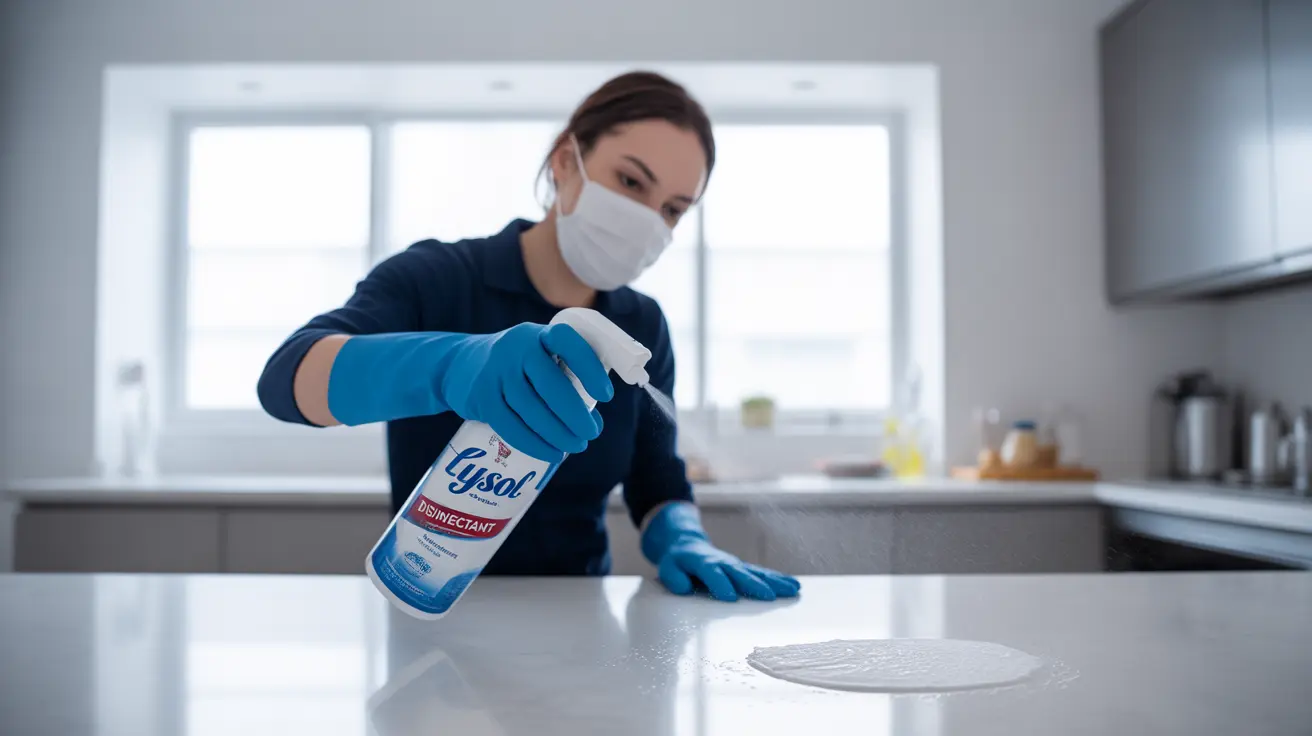As the COVID-19 pandemic continues to evolve, many people wonder about the effectiveness of common household disinfectants against the SARS-CoV-2 virus. Lysol products, in particular, have gained attention for their potential role in surface disinfection. This comprehensive guide examines the science behind Lysol's effectiveness against COVID-19 and provides essential information for safe and proper use.
Understanding Lysol's Effectiveness Against COVID-19
The Environmental Protection Agency (EPA) has officially tested and approved specific Lysol products for use against SARS-CoV-2, the virus that causes COVID-19. This validation comes after rigorous laboratory testing that demonstrates these products' ability to kill the virus on hard, non-porous surfaces when used as directed.
How Lysol Works Against the Coronavirus
Lysol disinfectant products contain active ingredients that effectively break down the viral envelope of SARS-CoV-2, rendering it inactive. The primary active ingredients include quaternary ammonium compounds and ethanol, which work together to disrupt the virus's protective outer layer.
Contact Time Requirements
For maximum effectiveness, Lysol products typically need to remain wet on surfaces for several minutes. This "dwell time" ensures the disinfectant has sufficient contact with the virus to neutralize it completely. Most Lysol products require between 2 to 10 minutes of contact time, depending on the specific formulation.
Safe Usage Guidelines and Limitations
While Lysol is effective against COVID-19, it's crucial to understand proper usage guidelines and limitations to ensure safety and maximize effectiveness.
Appropriate Surfaces for Use
Lysol disinfectant sprays are designed for use on hard, non-porous surfaces such as:
- Doorknobs and handles
- Light switches
- Counter tops
- Tables
- Hard-backed chairs
- Electronics (with proper precautions)
- Bathroom fixtures
Safety Precautions
When using Lysol products, always:
- Ensure proper ventilation
- Wear gloves if using frequently
- Never mix with other cleaning products
- Keep away from children and pets
- Follow label instructions precisely
- Never apply directly to skin or food
Effectiveness Against New Variants
Current evidence suggests that EPA-approved disinfectants, including Lysol products, remain effective against new COVID-19 variants. This is because the basic structure of the virus remains similar across variants, and the mechanism by which disinfectants work continues to be effective.
Frequently Asked Questions
Does Lysol Disinfectant Spray effectively kill the COVID-19 virus on surfaces? Yes, EPA-approved Lysol Disinfectant Spray products have been proven effective against SARS-CoV-2 when used as directed on hard, non-porous surfaces.
How long does it take for Lysol products to kill SARS-CoV-2 on a hard surface? Most Lysol products require 2-10 minutes of continuous contact time (surface must remain visibly wet) to effectively kill the COVID-19 virus.
Can I use Lysol disinfectant spray safely on all surfaces and on my skin? No, Lysol disinfectant spray should only be used on hard, non-porous surfaces and should never be applied directly to skin, food, or fabrics that come into direct contact with skin.
What ingredients in Lysol disinfectants help kill the coronavirus? The primary active ingredients are quaternary ammonium compounds and ethanol, which work by breaking down the virus's protective outer layer.
Are Lysol disinfectants effective against new variants of the COVID-19 virus? Yes, current evidence indicates that EPA-approved Lysol disinfectants remain effective against known COVID-19 variants due to their mechanism of action against the virus's basic structure.
Remember that while disinfection is important, it should be part of a comprehensive approach to preventing COVID-19 transmission, including proper hand hygiene, mask-wearing when recommended, and following current public health guidelines.




